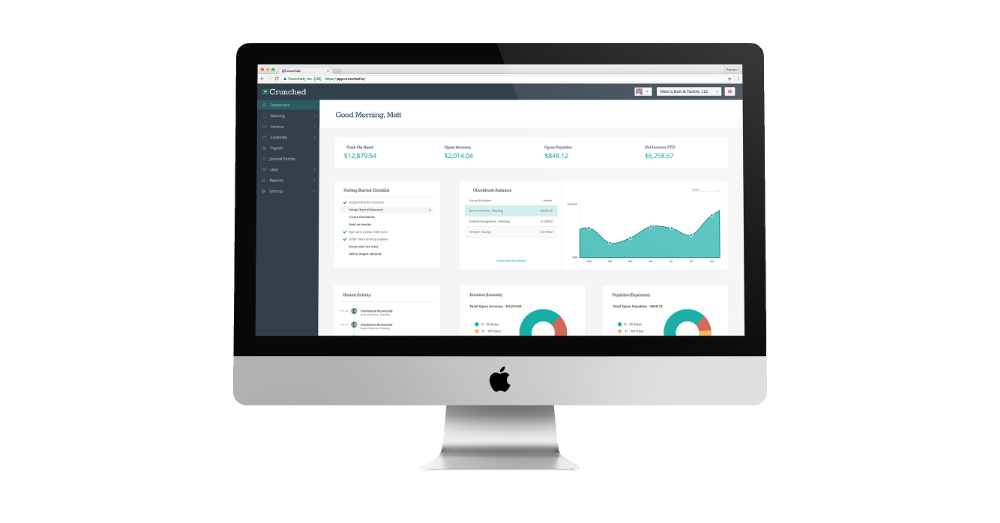6 Tips To Help You Successfully Manage Accounts Payable
By Matt Reims
Successfully managing accounts payable is one of the most important financial responsibilities for any small business. That’s because accounts payable represents the money you owe to anyone who’s provided a product or service on credit, like a vendor or supplier. It’s crucial to keep a close eye on these bills. Letting invoices lapse can lead to penalties, cause hiccups with your cash flow, or mean that you could lose the faith of your vendors for future transactions.
Your small business can avoid those potential pitfalls by making sure to pay your bills on time. The best way to ensure you are timely in paying invoices is to monitor your financial transactions on a consistent basis, not just when it’s time to pay for goods or services.
Monitoring your accounts payable is just one way to successfully manage them. Here are a few other ways to ensure your accounts payable are up to date.
1. Create a Schedule to Pay Vendors
Your vendors will include due dates with each invoice and expect to be paid by that date. Your goal should be to keep funds in your bank account as long as possible so they can continue to collect interest. Confer with vendors to understand their payment terms, and work to extend them as long as possible. If you pay vendors electronically, you should be able to wait until the due date to make the payment. Holding off until the actual due date will make funds available later in the month in the event that other obligations come up.
2. Cut Costs Wherever You Can
Another way to successfully manage your accounts payable, and help free up cash to pay invoices on time, is to have fewer bills. Some are unavoidable, of course, like rent, office equipment, etc. Look for recurring costs that aren’t necessary, like subscriptions that are not being used, leases for unused computers, etc. If there’s nothing to trim in the budget or cuts aren’t significant enough to make a dent, you can always attempt to negotiate more favorable payment terms with your vendors.
3. Use Technology to Your Advantage
Losing track of unpaid invoices and miscalculating figures are two of the biggest contributors to a messy accounts payable situation. You can sidestep these errors by using cloud accounting software.
Cloud accounting software lets you record accounts payable transactions, record due dates into your accounts payable system, and print expenses out prior to their due dates, if needed.
You’ll also be able to monitor cash flow by seeing future balances and cash requirements before and after payables are due. Most importantly, cloud accounting software will ensure accuracy when it comes to how much money is due to vendors. And everything is packaged into one easy-to-access, cloud-based platform. You won’t have to rely on ledger books, spreadsheets, and paper invoices, which are all subject to human error.
4. Be on the Alert for Fraud
Preventing fraud is another key element in effectively managing accounts payable. Fraud can come at the hands of dishonest employees and/or vendors. It’s up to you and your leadership to protect your money. Establish security policies. For example, if one employee establishes a new obligation, like a vendor account, another employee has to be the one to pay into it.
In regard to vendors, review invoices regularly to make sure you’re not being charged for products or services you did not receive. You’re spending enough money on products you do use; the last thing you need to do is spend money on nonexistent line items.
5. Seek Outside Help If and When Necessary
If you’re running your small business by yourself, consider bringing someone in to review your books as needed. A professional bookkeeper can help ensure that invoices are being paid on time and that your expenses are properly tracked. Managing your company’s finances can be overwhelming if you’re managing a heavy load of additional tasks. Trying to take on too many responsibilities in this situation can lead to financial errors.
Even if you have people working for you, it can still be a good idea to have someone dedicated to managing accounts payable and other small business accounting tasks. Just make sure to use a trained bookkeeper with small business accounting management experience. Financial tasks are not appropriate for, say, an employee who wants to take it on in addition to their regular job duties. This type of arrangement could result in errors, like failure to pay an invoice.
If you do have a dedicated bookkeeper on staff, it would not hurt to also bring in an accountant every once in a while to look over your records. They might spot an error that your team didn’t. And they may have suggestions for how your small business could save additional money.
6. Keep It Simple
Managing accounts payable shouldn’t consume an overwhelming amount of your time. To help streamline the process, minimize how often check runs occur; ideally, you should only do them every other week. And ask your accounting team to get all invoices approved by the appropriate team member before they come to you for your signature.
If you have a separate accounts payable department, communicate with them to determine which invoices to prioritize if cash is limited during a particular payment cycle. Also, let your employees know they can use their own discretion when it comes to certain payment decisions that aren’t critical. These might include paying part of large balances, holding off on payments to vendors who offer more wiggle room on invoice due dates, etc.
Managing accounts payable isn’t the most glamorous part of owning a small business, but doing it well will ensure your company’s financial health. Taking a few small steps today to keep your accounts payable in order will save you a lot of pain tomorrow – and beyond.


